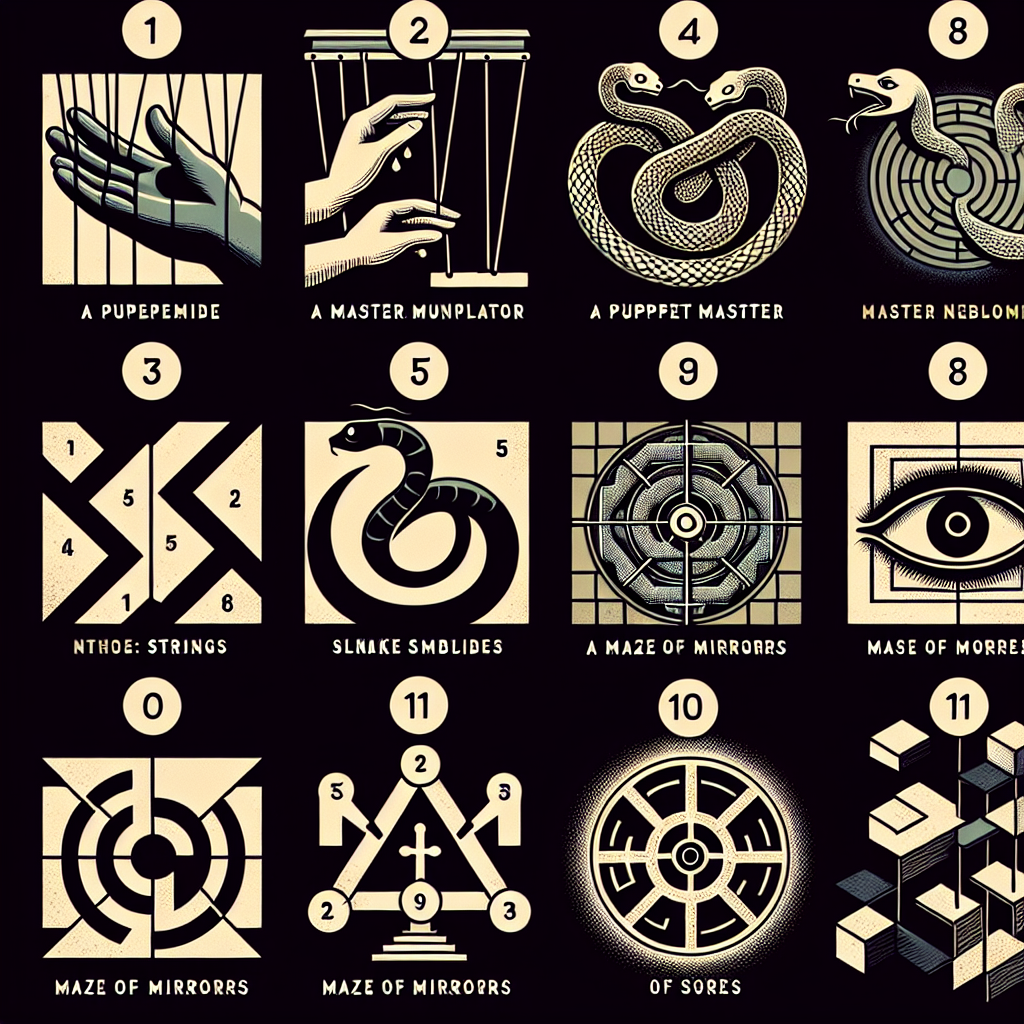10 Signs You’re Facing a Master Manipulator
“`html
10 Signs You’re Facing a Master Manipulator
Manipulation is a subtle art that can be difficult to detect, especially when executed by a master manipulator. These individuals are skilled at influencing others to achieve their own ends, often leaving their victims feeling confused and powerless. Understanding the signs of manipulation can help you protect yourself from being exploited. Here are ten signs that you might be dealing with a master manipulator.
1. They Play the Victim
Master manipulators often portray themselves as victims to elicit sympathy and avoid responsibility. By doing so, they shift the focus away from their actions and onto their supposed suffering. This tactic can make you feel guilty for questioning their motives or actions.
2. They Use Emotional Blackmail
Emotional blackmail involves using fear, obligation, and guilt to control another person. A manipulator might threaten to harm themselves or withdraw affection to get what they want. This creates a sense of urgency and pressure, making it difficult for the victim to refuse their demands.
3. They Are Experts at Gaslighting
Gaslighting is a form of psychological manipulation where the manipulator makes the victim doubt their own perceptions and sanity. They might deny events, twist facts, or blame the victim for things they didn’t do. Over time, this can erode the victim’s confidence and sense of reality.
4. They Are Charming and Charismatic
Manipulators often possess a magnetic charm that draws people in. They are skilled at making others feel special and valued, which can make it difficult to see their true intentions. This charm is often a facade used to gain trust and influence.
5. They Use Triangulation
Triangulation involves bringing a third party into a conflict to create division and confusion. A manipulator might pit people against each other or use others to validate their perspective. This tactic can isolate the victim and make them more dependent on the manipulator.
6. They Are Skilled at Lying and Deception
Master manipulators are often compulsive liars. They weave intricate stories and half-truths to control the narrative and maintain their power. Their lies can be difficult to detect because they are often mixed with elements of truth.
7. They Shift Blame
Manipulators rarely take responsibility for their actions. Instead, they deflect blame onto others, making it seem like they are never at fault. This can leave the victim feeling guilty and responsible for the manipulator’s behavior.
8. They Use Passive-Aggressive Behavior
Passive-aggressive behavior is a common tool for manipulators. They might express anger or resentment indirectly through sarcasm, procrastination, or backhanded compliments. This behavior can be confusing and frustrating for the victim, who may struggle to address the underlying issues.
9. They Exploit Your Insecurities
Manipulators are adept at identifying and exploiting their victim’s insecurities. They might use these vulnerabilities to undermine the victim’s confidence and self-esteem, making them more susceptible to manipulation.
10. They Create a Sense of Urgency
By creating a sense of urgency, manipulators pressure their victims into making hasty decisions. They might claim that an opportunity is fleeting or that immediate action is necessary, leaving the victim little time to think critically or seek advice.
Conclusion
Recognizing the signs of manipulation is the first step in protecting yourself from a master manipulator. By understanding their tactics, you can maintain your autonomy and make informed decisions. Remember, it’s important to trust your instincts and seek support if you suspect you’re being manipulated. Awareness and assertiveness are your best defenses against manipulation.
“`




